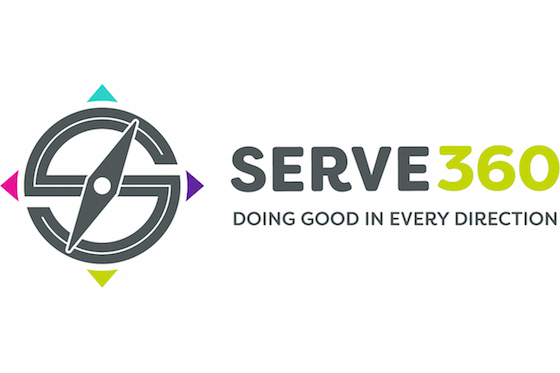In November, Marriott International introduced Serve 360, a roadmap for the company to reduce its environmental impact and operate more sustainable hotels, among other goals, such as community and employee development, and human rights initiatives. Those goals include reducing hotels’ use of water, carbon and waste across the portfolio by 2025. Goals shift depending on the region, according to Denise Naguib, Marriott’s vice president of sustainability and supplier diversity. “The challenges will come when major global events or regulations shift what we know today, and we will then need to review the assumptions we’ve made and adjust our plans accordingly.” Naguib shared more details on the wide-ranging initiative with HOTELS.

What are the biggest operational challenges in setting this up systemwide and globally?
This was the first time we worked across the full organization to set metrics on a variety of goals. This took a great deal of education, understanding where we were starting from, and determining how far we wanted to stretch ourselves as we moved forward. Amid this process, we acquired Starwood, so we then went back to reassess, and ultimately align on the new goals.
One of the biggest challenges we’re facing is making sure we have a high-quality data collection process in place that fits each of our systems, across the world. It can be tricky to get the data that we need to support these goals. On both sides of the company, we have worked for many years on our water and carbon goals – but waste, for example, is newer territory. We’re now working with our hotels, waste haulers and other vendors to support the collection of this data and ultimately to develop best practices for our hotels.
In addition, we need to ensure that while we are operating responsibly and sustainably, we are also delivering the best possible guest experience.
Individual hotel properties will be required to show this kind of improvement by 2025, correct?
Confirmed! We’ve committed to reducing our environmental footprint across our portfolio, both managed and franchised, by reducing water by 15%, carbon by 30%, and waste by 45% on an intensity basis by 2025, along with achieving a minimum 30% renewable energy use.
We are also tracking individual hotel sustainability certifications, volunteer hours, progress towards human rights trainings, and more. Each hotel’s progress will be rolled up to the continent’s scorecard, and ultimately the global scorecard.

How do these goals change the conversation with property owners?
It has to be a part of the conversation from the starting point. In addition to reducing environmental impacts across operations, we’re also committing to having 100% of hotels have a sustainability certification by 2025, 650 of which will pursue LEED certification or equivalent by 2025. So, doing business with Marriott is going to mean valuing sustainability.
As far as investment, as with every investment an owner puts into the hotel, a full review of that investment will need to be made. Frequently, there is direct ROI – for instance, by investing in a lighting retrofit, an owner can shrink energy bills. Other times it is an indirect return, since it shifts perception from travelers and reputation of the company as a whole.
How do you enforce compliance among owners?
We spend a good amount of time educating owners and other stakeholders about the business case of the investments – that investing today means cost reductions and risk mitigation in the long-term, which will ultimately increase profits. Beyond an operational standpoint, consumers want to do business with companies and brands that align with their values, so it’s a tremendous opportunity.
As far as compliance, we have a few sustainability brand standards in place right now. Going forward, changes to how we do business today will be adjusted in those standards, as well as overarching operating standards to drive more support. We can envision a time where the brand specifications for certain projects are the sustainable ones so to be in compliance with the standard would equate to purchasing the sustainable product.
Are there differences among brands or geographical adaptations?
Yes. We have 30 brands, and each is unique. While sustainability needs to be embedded into our business across our portfolio, some brands make it a core part of their profile and a differentiator for guests (such as Element Hotels).
Geography is also a factor to how we uniquely manage sustainability. For instance, as part of the European Union 2020 energy initiatives, total energy consumption across all EU member states needs to be reduced by 20%, which means an increase of energy monitoring, performing audits, and developing plans to be in compliance with the policy. However, many of our hotels were already in compliance without extra investment.
Each region has their own set of goals for carbon and water, based on where they are starting from and where the opportunity is for them to improve. The challenges will come when major global events or regulations shift what we know today, and we will then need to review the assumptions we’ve made and adjust our plans accordingly. A lot can happen in the next eight-plus years, so we will remain aware of and flexible to the global changes that are bound to come.
How much is the company investing build the tech system necessary to track all this?
We are not directly quantifying the investment in the various tools and systems because these systems are already part of how we operate today. We expect to use the tools and systems in place, and increase monitoring of these data points across the organization instead of purely by the discipline leaders. For example, instead of the engineers only having visibility to their hotel’s carbon, water and waste metrics, general managers, area vice presidents, and the continent leaders will now see that data on the scorecard and know how well their region is doing against their goals.
Our biggest investments will be in the people power – we will continue to educate associates at all levels, and drive towards using the time our associates spend today in a way that meets the guests’ needs while driving towards our goals.
Will a component of the system involve the guest?
Our guests are an essential part of our sustainability journey. We want them to be able to factor a hotel’s sustainability performance into their purchasing decisions, which is why we have a goal to have a Serve 360 section on each properties’ website by 2020 where current and potential customers can view impact metrics. We will also work with our B2B relationships to engage our major customers on ways they too can be part of the solutions. We have a lot of great interest in this and will find opportunities to ensure that our guests that wish to be are actively involved in the solutions.
What is Marriott’s position on climate change? It’s become a charged political buzzword of late.
We recognize the reality and importance of climate change and its effect on U.S. and global businesses, economies and communities. Our 2025 Sustainability and Social Impact Goals support efforts to mitigate climate-related risk, such as reducing our environmental impacts, building and operating sustainable hotels, and sourcing responsibly. We support global efforts to address climate change and have mapped our sustainability and social impact work to the U.N. Sustainable Development Goals.
